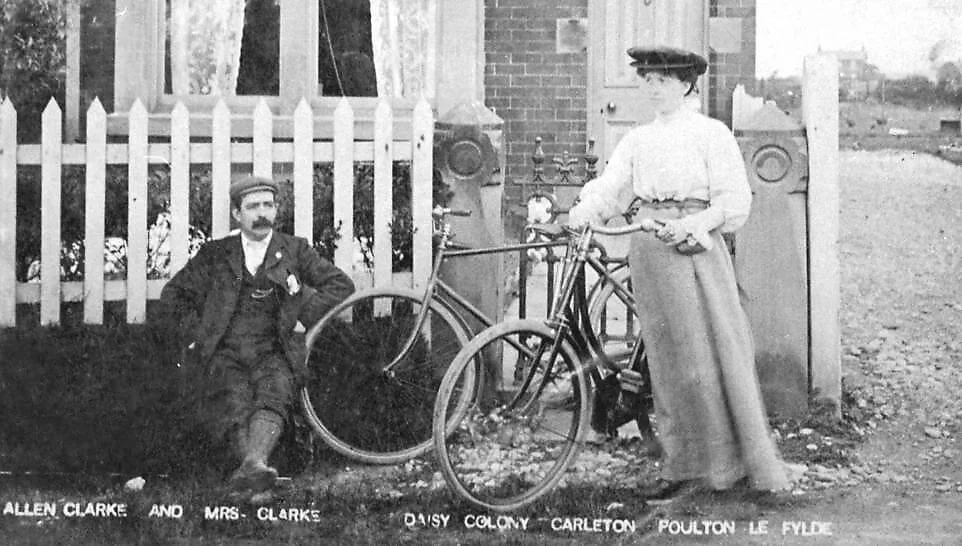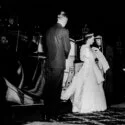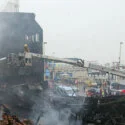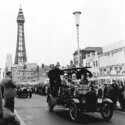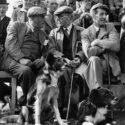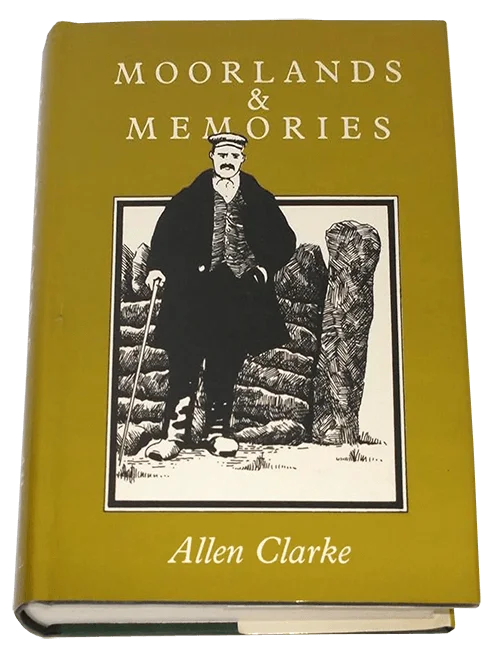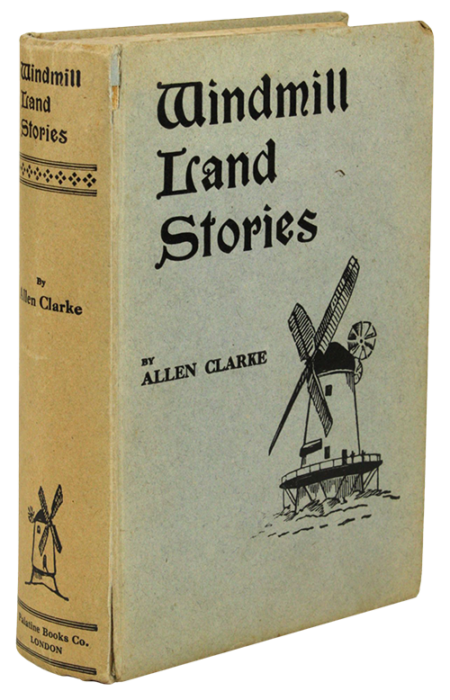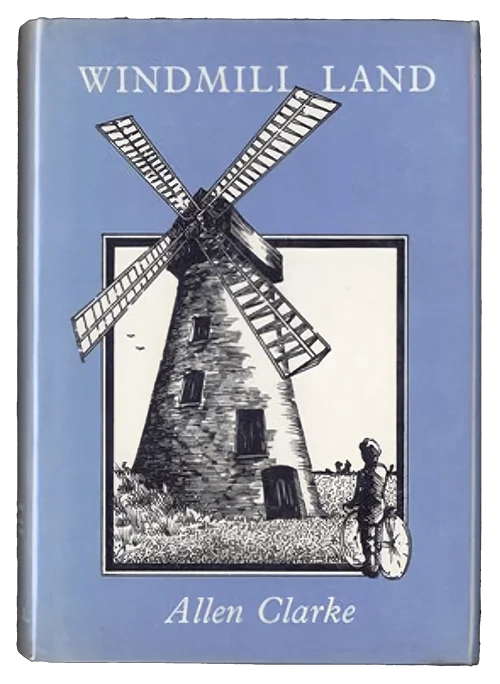One hundred years ago, Allen Clarke, a former mill worker from Bolton, created a masterpiece titled Moorlands and Memories, subtitled Rambles and Rides in the Fair Places of Steam-Engine Land. The book was first published in 1920 by Tillotson’s of Bolton, the newspaper company behind The Bolton Evening News, which later became today’s Bolton News.
Allen Clarke passed away in December 1935, having continued to walk and cycle right up to the end of his life. It is unfortunate that there is no memorial to him in Bolton, his hometown. However, Little Marton Mill, located on the outskirts of Blackpool, has been preserved as a tribute to this “man who loved windmills,” thanks to the dedicated efforts of local volunteers.
Click image above to buy book from Amazon – if available
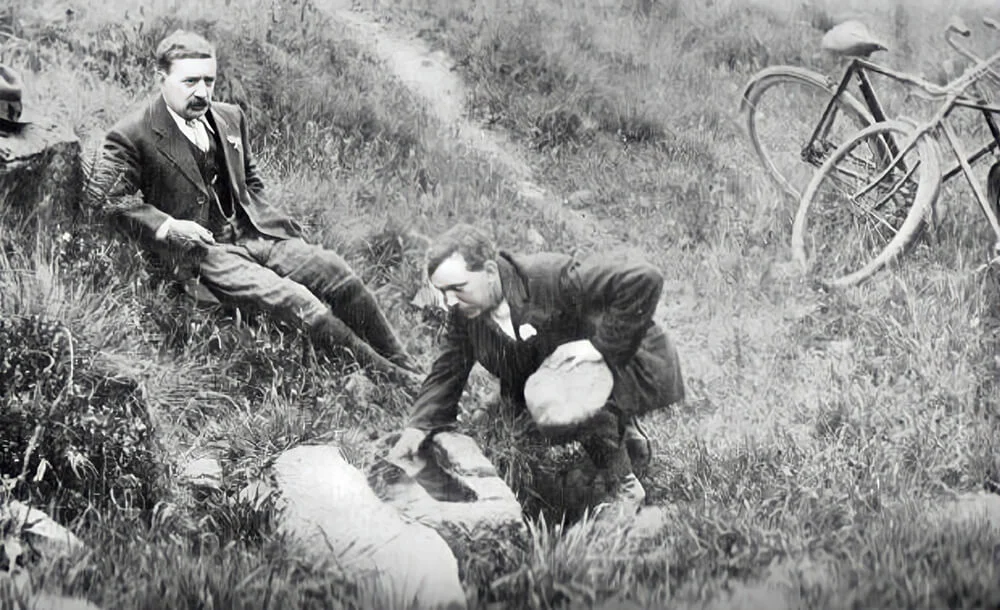
As the title suggests, Moorlands and Memories is more than just a book about the moors. The ‘memories’ span Clarke’s childhood and upbringing in mid-Victorian Bolton, offering an intensely personal account of people and places that shaped his life. It is a rich collection of anecdotes, history, literature, philosophy, and vivid descriptions of Lancashire’s landscape. Some of the articles were written during the First World War, and the book was published less than two years after its conclusion, in a world left reeling by the loss of millions. While the shadow of the war looms over the book, Clarke does not indulge in despondency. Instead, his attitude is one of sadness and occasional outrage, rejecting the glorification of war and instead expressing profound compassion for those who fought and died.
Clarke’s writing is conversational, philosophical, and lyrical. He delves into the lives of handloom weavers, dialect writers, secret Chartist meetings on the moors, the Winter Hill ‘mass trespass’ of 1896, Bolton’s connection to Walt Whitman, and the legendary Lancashire boggart. The book takes readers on a journey through urban, industrial Bolton and picturesque spots like Barrow Bridge, a place Clarke adored and popularised through his earlier works such as Tales of a Deserted Village (1893). He highlights the characters of Halliwell Road, where streets were named after great artists and poets such as Virgil, Wordsworth, and Handel. One of Clarke’s beloved characters was ‘Owd Shappey’, a refugee from the French Revolution who found sanctuary in Barrow Bridge before settling in Halliwell Road. Clarke’s sympathy for refugees was deeply personal, as his own family had fled Ireland during the Potato Famine.
Clarke was a passionate cyclist and walker, and his book recounts many of his rambles, including trips from Bolton through Belmont to Preston and his ‘second home’, Blackpool. His routes often took him over Tonge Moor Road, through Bradshaw and across Holcombe and Ramsbottom into Rossendale. He had a particular fondness for the Turton area, with its ‘children’s homes’ at Edgworth and the picturesque railway viaduct at Entwistle. Clarke’s writings are not just about places; they are about people, legends, and folklore, offering a glimpse into the essence of the locations he cherished. His bicycle, he fondly writes, was more than just a mode of transport – it was a companion and an extension of himself, amplifying his soul.
Clarke spoke of the ‘three Lancashires’: the industrial Lancashire of factories and mills, the gentler Lancashire stretching from Preston to Blackpool and the Fylde, which he referred to as ‘Windmill Land’, and the ‘Moorland Lancashire’. In Moorlands and Memories, he celebrates the characters of Moorland Lancashire, finding meaning in their lives and stories. He believed there was always something to learn, something to observe, and every new day offered a new revelation. His writing reflected this connection with people and places, as he described how his soul stretched out into others.
Born in Bolton in 1863, Clarke’s early life was shaped by hardship. His parents, both mill workers, encouraged his love of reading and writing, even though he began working in the mill at the age of 11. Clarke developed his own brand of popular journalism, blending Labour politics with humour and wisdom in Lancashire dialect. He became known under the pseudonym ‘Teddy Ashton’, although he used several others. His Tum Fowt Sketches, written in Bolton dialect, featured the mischievous Bill and Bet Spriggs and became immensely popular in the textile towns of South Lancashire and the West Riding. His publications, including The Trotter and Teddy Ashton’s Northern Weekly, reached tens of thousands of readers.
A prolific and diverse writer, Clarke brought out over 20 novels, as well as poetry, short stories, social commentaries, and philosophical essays. His work Effects of the Factory System, which was translated into Russian by his friend Leo Tolstoy, exposed the harsh conditions of Lancashire’s mills and proposed a vision for a better future. Clarke was ahead of his time in his environmental concerns, as seen in his novel A Daughter of the Factory, where a character advocates for cleaning up the polluted landscape of ‘Slagbourne’, which may have been Blackburn. In one passage, the heroine tells her lover: “We must make Lancashire clean again. We must wash the smoky dust off the petals of the red rose.”
Allen Clarke’s Moorlands and Memories has been the subject of a new book by Paul Salveson, titled Moorlands, Memories and Reflections. This work explores the moors and villages Clarke described, reflecting on how the landscape and the towns have changed over time. It is published by Lancashire Loominary and includes a foreword by Maxine Peake. Further details can be found at www.lancashireloominary.co.uk or by contacting info@lancashireloominary.co.uk.
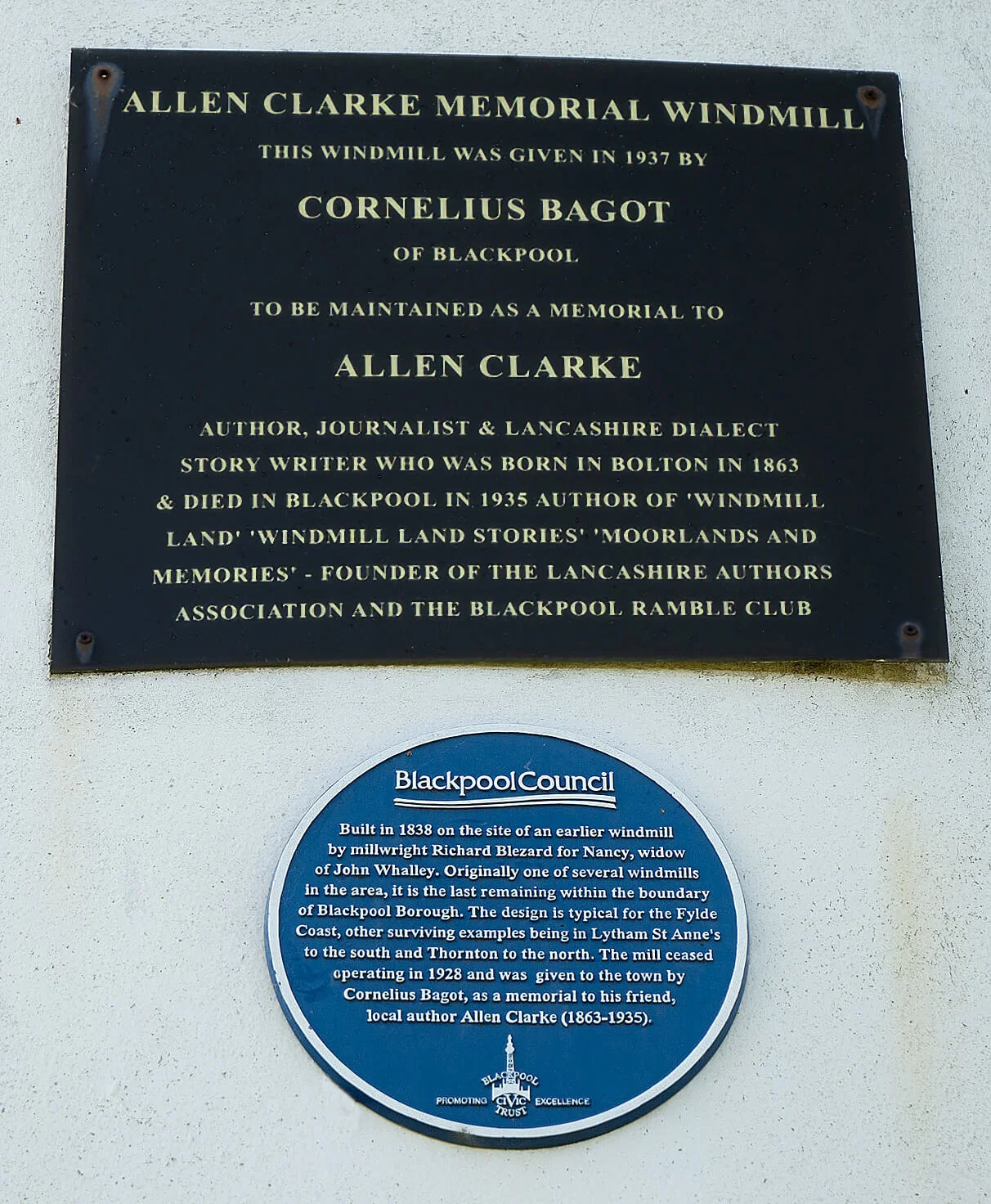
Image of plaques on Little Marton Mill, Blackpool. © Deeper Blue Marketing & Design Ltd
